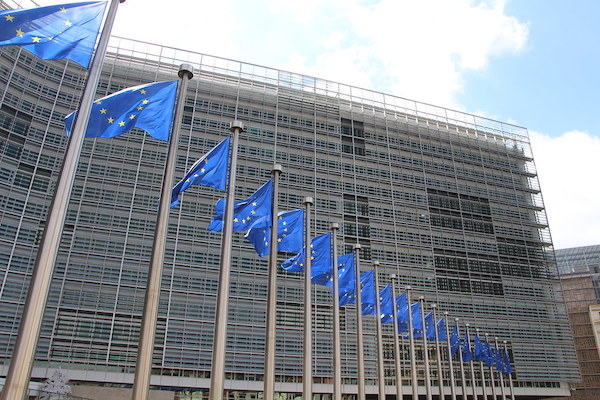One month after reaching agreement on a law on digital markets (Digital Markets Act, or DMA), the European Council and Parliament have reached agreement on a Digital Services Act, or DSA. to make the Internet a safer place for European citizens ".
While the Digital Markets Act (DMA) aims to better regulate the economic activities of the largest platforms, the Digital Services Act (DSA) " aims to protect the digital space against the dissemination of illegal content and to ensure the protection of users' fundamental rights."
This legislation is based on the principle that "what is illegal offline must also be illegal online".
New obligations for service providers and in particular for platforms
The Digital Services Act (DSA) seeks to limit the dissemination of illegal content (incitement to hatred or violence, harassment, child pornography, apology for terrorism ...) and the sale of illegal products online.This law does not call into question the limited responsibility of platforms with respect to the illegal content and products they host (the notion of "passive host"): however, they will have to offer a tool allowing users to report them. Once this report is made, they will have to remove these contents and products or quickly deactivate access to them.
Platforms will be obliged to cooperate with "trusted alerts". These are bodies, associations or individuals labeled within each state by virtue of their expertise and who will have their notifications processed as a priority.
The Digital Services Act (DSA) also prohibits targeting people with online advertisements based on their religion, sexual preference, health information or political beliefs. Targeted advertising to minors is also prohibited.
Targeted advertising and moderation policies of platforms are subject to transparency obligations. In particular, platforms will have to explain the functioning of their recommendation systems, which increase the visibility of certain content for a user based on his or her personal interests. The very large online platforms and search engines will also be obliged to offer users an alternative recommendation system not based on their profiling.
Dark patterns, which are user interfaces specifically designed to deceive or manipulate a user, will be prohibited.
The very large platforms, on the other hand, will be required to assess and take measures to mitigate the risks arising from the use of their services: dissemination of illegal content, negative effects on private and family life, infringement of freedom of expression. They will have to carry out this risk reduction analysis every year under the supervision of the European Commission.
Online marketplaces that bring together sellers and consumers, such as Amazon or AirBnb, will be required to display certain information about the products and services they sell, as well as hold information that can be used to track sellers of illegal goods and services.
Who are the targeted actors?
While the Digital Market Act (DMA) is aimed exclusively at large platforms (those that "have a strong impact on the internal market, that constitute an important access point for user companies to reach their customers, and that occupy or will occupy in the foreseeable future a solid and sustainable position "), the Digital Services Act (DSA) concerns, on the other hand, all companies offering "intermediary services" to European users: Internet access providers, cloud services, messaging systems, marketplaces, social networks, etc.Additional obligations are foreseen for hosts, including platforms, and even more so for "very large platforms" (more than 45 million active users each month) and " very large online search engines " (more than 45 million users).
Several provisions of this legislation aim to counterbalance the content control measures in order to guarantee the respect of freedom of expression: the author of an illicit content will have to be informed before its removal. He/she will be able to contest this decision free of charge with the platform (in addition to the courts) and ask for a financial compensation to the company if it does not respect the text.
While the Digital Services Act (DSA) aims to encourage the deletion of illegal content, legal harmful content (misinformation, hoaxes, manipulation...) is not concerned in the same way. The text aims to limit their propagation not by deleting them, which would be contrary to freedom of expression, but by requiring platforms to review the mechanisms (algorithms) that allow their amplification.
These harmful contents are now the subject of a code of good practice against misinformation, signed by several major digital companies.
What are the penalties?
Under this legislation, each Member State will determine the applicable penalties up to a maximum of 6% of the company's annual income or turnover (reduced to 1% in the case of incorrect information or refusal to carry out an on-site investigation).Penalties will be limited to 5% of daily turnover. For very large platforms, the Commission will be able to monitor compliance with the legislation itself. Companies that repeatedly fail to comply with the rules may be banned.
Références :
Sources
- 1. Toute l'Europe: Digital: what are the DMA and DSA, the European Internet regulation projects?
- 2. European Commission: The Digital Services Act: ensuring a safe and accountable online environment
- 3. European Parliament: Legislation on digital services: Council and Parliament reach provisional agreement to make the Internet a safer place for European citizens





